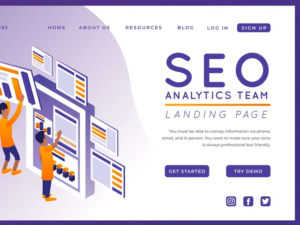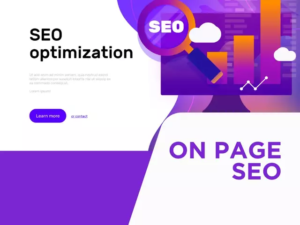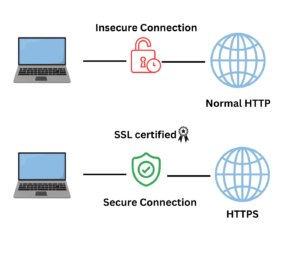Online shopping, as we know it, is all too common nowadays, but like most things, it had humble beginnings and its fair share of concerns. Ecommerce websites were initially seen as security risks, until Netscape introduced SSL in 1994 and provided a safe way to transmit data over the web.
While Amazon and eBay were not the first online marketplace, they were the ones to initially attach excitement and convenience to the process. The former, as an online bookshop, and the latter as an auction site. Soon, PayPal emerged and became the trusted platform for handling both personal and business to business transactions online. And with that, a familiar cycle was born.

How Does Ecommerce Work?
An ecommerce store facilitates buying and selling of goods and services online.
For businesses, this ultimately takes shape in the form of an online marketplace designed to showcase their products. Often, ecommerce sites are created using a platform like Shopify or a third-party plugin like WooCommerce.
But for full creative control, businesses can also hire an established SEO and website design agency like Web9 for a holistic and personalised ecommerce solution.

What Is Needed for a Successful Ecommerce Website?
User-Friendly Design
A responsive design is necessary for providing consumers with a professional and optimal shopping experience, regardless of what device they are using to browse your content.
Given the search engine algorithm updates in recent times, a mobile-friendly website is also not just about appeasing the customers, it’s also for search engine optimisation.
Google, the most recognisable search engine in the market, is fully implementing its mobile-first indexing practices. This means websites with responsive designs or a mobile version will be prioritised over other users. On the other hand, online stores that don’t render on mobile will not be indexed at all.
With that said, responsive design is just one of the many factors that make up a user-friendly design.
In general, your online store must also have good navigation and readability on all screen sizes, as well as accessibility features that welcome all internet users.
Fast-Loading Speed
The best ecommerce websites don’t stop at good concept and design, the developers also make sure that the functional online store is able to load fast and run seamlessly on all devices and platforms. After all, a high bounce rate can have a negative impact on an ecommerce business.
Clear Navigation and Search Options
An unstructured or unclear navigation menu or categorisation in an ecommerce platform can frustrate users. For one, they may encounter difficulties in finding desired products, which will definitely hamper your conversion rate and customer satisfaction.
Likewise, poor search functionality can drive away potential customers. Designing an effective search functionality is a combination of design and structure. First, products must be labelled and categorised in a well-defined and efficient way.
This will help customers find specific products more quickly through effective search filters. On that note, you should also certainly also need to check out the most common website design mistakes to avoid.
Seamless Checkout Process
A seamless checkout experience is another way to boost sales. For starters, you have to decide if the checkout process will require an account, and at what point are you going to ask a new user to register.
Some buyers consider signing up tedious and prefer guest checkouts to expedite the process. Either way, you can still provide a positive user experience if you add clear progress indicators that will guide the customer every step of the way.
A transparent and guided process is crucial for all ecommerce platforms, especially when closing a transaction.

Which Ecommerce Platform is Best in Australia?
The best ecommerce website builder is a matter of fit and purpose. But, of course, we have the best ones lined up for you, including the scenarios in which you might find them most useful.
Shopify
Shopify allows an online business to easily create and manage an online store using its own platform. For the most part, it’s a great ecommerce website design tool for small to medium-sized businesses and beginners who have little to no experience in website design and development.
On balance, the platform is highly regarded for its user-friendly interface, codeless site builder, built-in themes and apps, payment gateways, and excellent customer support.
Meanwhile, maintaining your own store and custom domain on Shopify can be more expensive over time, especially if you have additional features. In addition, customisation options are limited, which is why big businesses and advanced users eventually migrate out of the platform as they scale.
WooCommerce
WooCommerce is a wildly popular ecommerce plugin for WordPress.
Hence, it’s an efficient software to use for businesses who are already on the platform. Among its biggest upside is that it grants users more control over customisation and site management. It also works seamlessly with an array of other WordPress plugins, including paid and free apps.
The annual fees to unlock all of WooCommerce’s functionalities can also be costly, especially since the WordPress hosting service is paid separately.
Wix Ecommerce
The drag and drop website builder that powers Wix website is largely convenient and intuitive. In that sense, it can be a powerful platform for SMEs and beginners who wish to sell online.
However, its themes and apps for ecommerce are not as diverse or extensive. While Wix starts off with a free plan and more design flexibility with its template library, most designs are a better fit for blogging and microsites.

How Do I Create My Own Ecommerce Website?
Shopify and Wix are great at providing ecommerce solutions for SMEs. Both platforms boast intuitive website builders, with built-in themes and third-party apps that provide additional personalisation and flexibility.
On the other hand, WooCommerce is perfect for users who prefer WordPress hosting and its reliability. Not to mention that the WooCommerce plugin provides more customisation options, and is overall just perfect for creating more advanced online stores.
How Much Does it Cost to Build an Ecommerce Site?
The cost varies depending on what platform you are using, or if you’re doing the project yourself or hiring a professional to build and optimise the site for customers and SEO.
If you are looking for a holistic approach to your digital marketing strategy, you may consult for free with Web9, an award-winning web design company. The initial consultation will be a good opportunity to discuss your business goals and see for yourself how an exceptional website design can transform your business to a more competitive and trusted local brand.






